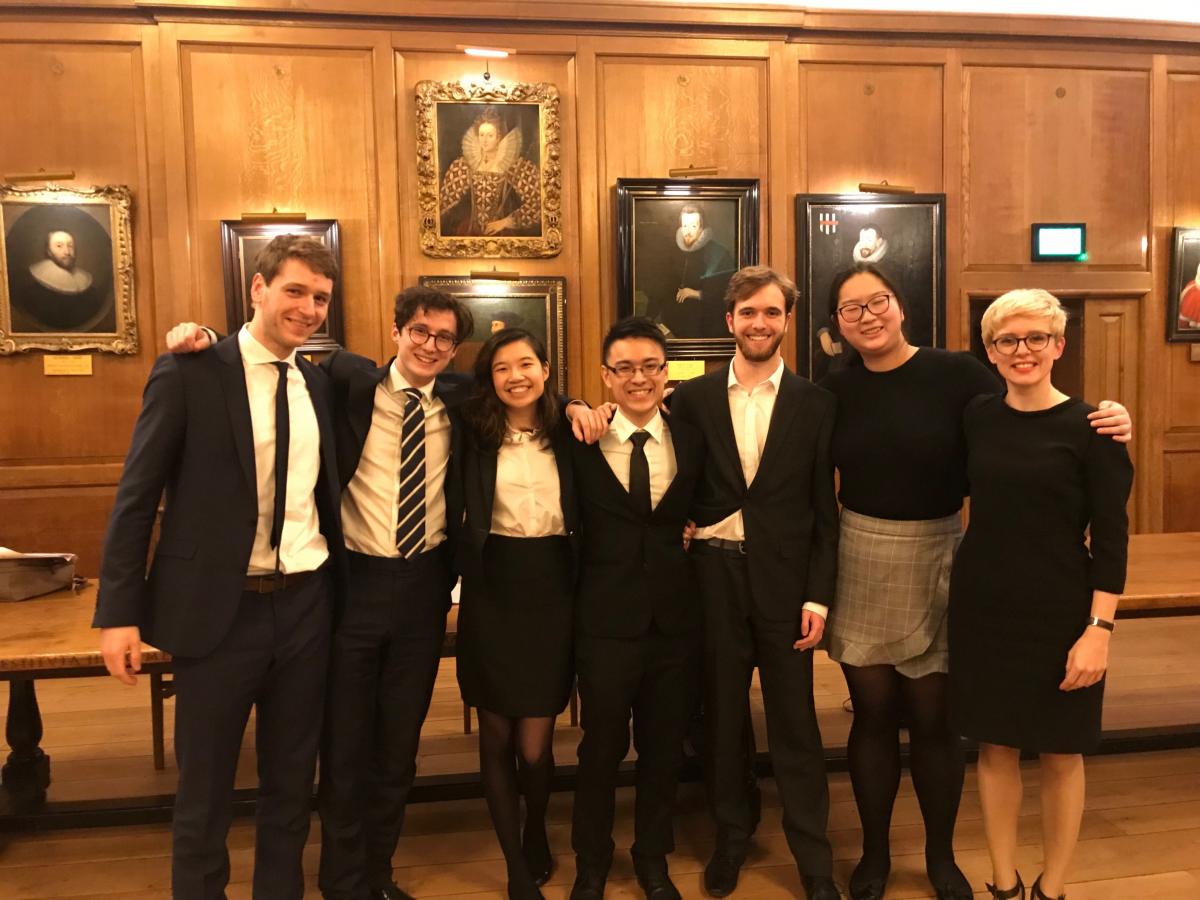University of Oxford Ranks Third in the UK National Rounds of the Philip C. Jessup International Law Moot Court Competition

Every year in February, it is time for the national rounds of the Philip C. Jessup International Moot Court Competition, the world’s largest and most prestigious international law moot competition. This year, the UK national rounds were held between 15-17 February at Gray’s Inn, London.
After having prepared written submissions, 16 teams from all over the UK spent the weekend pleading in front of renowned international law professors and practitioners. This year’s case concerned majestic herds of migratory Yak, addressing topical questions of State responsibility for corporate environmental degradation and human rights violations, the protection of endangered species, as well as the appropriation of traditional knowledge of indigenous people for commercial purposes.
University of Oxford’s Jessup team for this year comprised five undergraduate law students: Celine Leong (St Annes), Marina Hou (St Peters), Charles Redmond (Magdalene), Ee Hsiun Chong (St Johns), and Liam McKenna (Merton). The team was coached by Benjamin Nussberger (PhD, University of Cologne, visiting student, Brasenose), Katie Johnston (DPhil, St Edmund Hall) and Tsvetelina van Bentham (DPhil, Merton).
The team was able to continue Oxford’s long tradition of successful participation in the competition, advancing to the semi-finals where they encountered the team of King’s College London, who later in the day won the competition. Despite a narrow loss in the semi-final round, the team impressed coaches, audience, and judges alike with their thorough legal analysis and sophisticated oral pleadings. Their success was also reflected in the award for the best respondent memorial and ranking within the top three for all oralists. Charles Redmond was awarded the prize for the Best Oralist in the Preliminary Rounds, with Liam McKenna and Celine Leong both sharing the second place, and Ee Hsiun Chong following only marginally behind.

